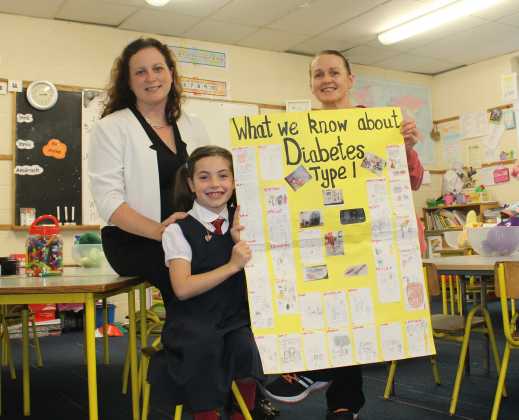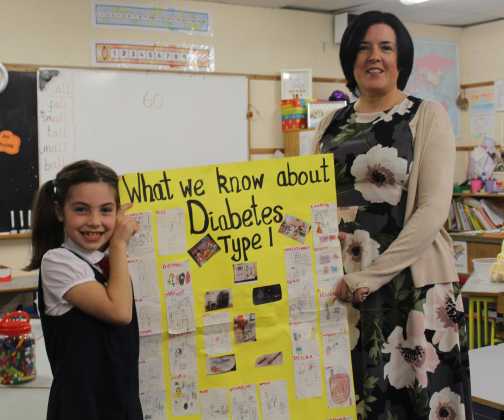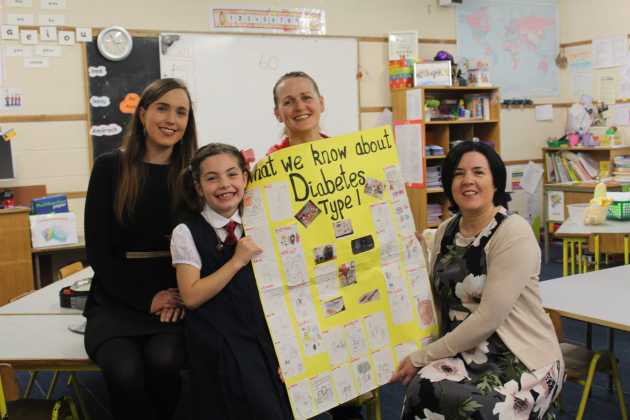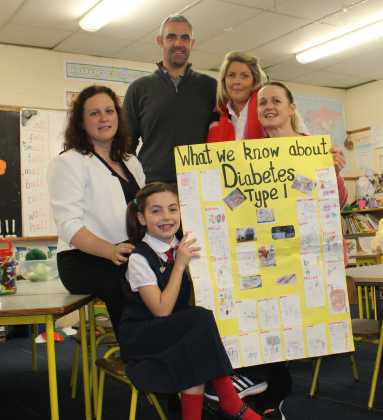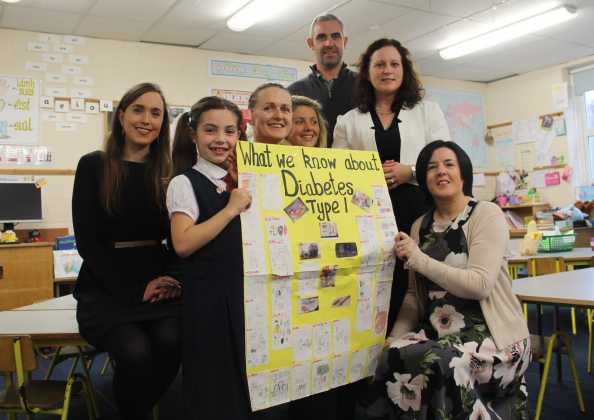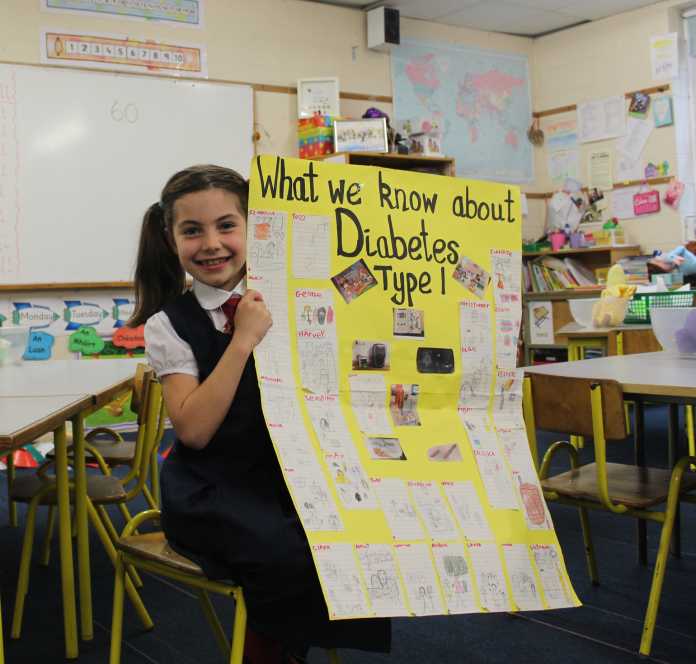
SEVEN-YEAR-OLD Ellie Noone from the Ennis Road, Limerick, is proof that with the right supports and education, children with Type 1 diabetes can live life to the full.
Ellie, in turn, has been educating her classmates at the Model School, O’Connell Avenue, on her condition through a collaborative poster project on living with type 1 diabetes mellitus (T1DM).
Prof Clodagh O’Gorman, Consultant Paediatrician in Diabetes and Endocrinology at University Hospital Limerick, said: “Most diabetes in children is type 1 diabetes mellitus and so children like Ellie require insulin injections. Type 1 is quite different to type 2, which is more common in adults.”
“Type 1 can be difficult to manage but our young patients are really quick at picking up on what they need to do and Ellie is a great example of this.”
Ellie’s mum Hazel and dad Joe recalled their daughter was only four when diagnosed.
“I will always remember Ellie’s diagnosis not only for the terrible fright Joe and I got but also the sheer irony that it was Easter week and the house was full of sugar.
In April 2015, Ellie began to feel ill with flu-like symptoms. Joe and I couldn’t quite put our finger on what was wrong with her. Having gone through the usual parent protocols, nothing seemed to add up. She was always a particularly active child and rarely had any sick days. She started complaining of tummy ache and visiting the little girls room a lot; she was up at night asking for drinks and this excessive thirst got progressively worse.
“On our way to a rehearsal for a show she was in, Ellie became really unwell. We rushed her to Shannondoc where the doctor discovered instantly that her sugar levels were through the roof. She was immediately admitted to the high dependency unit in The Children’s Ark at UHL with diabetic ketoacidosis. We have no family history of diabetes and Ellie’s medical team believe her diagnosis was as a result of a virus attacking her pancreas.”
“We were blessed to have Professor Clodagh O’Gorman and her team at UHL taking care of Ellie. They were quick to train us up to manage Ellie’s blood sugars and keep her healthy. It’s amazing how quickly one can learn something so intricate when there is such a precious life in the balance.”
“Ellie is a fantastic girl and is probably more active than most seven-year-olds. Joe and I couldn’t be more proud of how she has taken her diagnosis and turned it on its head. Ellie is a positive, outgoing, sporty and creative seven-year-old and she refuses to let her condition get in her way,” says Hazel.
As well as helping mum and dad look after her two younger brothers (JJ, 5, and Jamie, 2), Ellie described how she keeps her diary full almost all week.
“On Mondays I swim; on Tuesdays I chill; on Wednesdays I do gymnastics; on Thursdays I swim; on Fridays I swim again and on Saturdays I am hoping to start stage school,” Ellie says with a glint in her eye.
Last year in senior infants, Ellie had the idea to educate her classmates on type 1 diabetes and with the help of her Muinteoir Brefni McCarthy they decided on a poster project. This involved Ellie distributing pages to each of her classmates to draw a picture of what diabetes meant to them.
Ellie is one of almost 200 children and adolescents attending paediatric diabetes services at UHL.
Professor O’Gorman said that while diabetes in children is an unremitting, life-long condition with a very high lifetime rate of complications, intensive education, management and regular contact with the diabetes team can minimise the risks of complications.
“We expect that modern therapies, and close attention to achieving near normal blood sugars will protect them from the risks of diabetes complications in their future. The young people with type 1 diabetes who attend our clinic display great courage and tenacity, facing insulin injections every day of their lives,” she said.
“We also work with schools in the region and we organise an annual education session in paediatric diabetes for teachers, delivered by the paediatric multi-disciplinary team,” Prof O’Gorman added.
UHL has a skilled children’s diabetes team, comprising three clinical nurse specialists and a children’s diabetes dietitian. In recent weeks, the service has received a significant boost with the appointment of Dr Orla Neylon as a second consultant.



